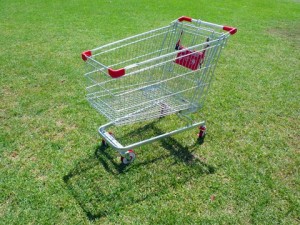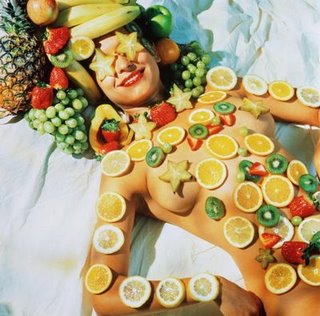
I’d always thought of registered dietitians as women who sit behind a desk outside a cafeteria and tell you to drink Ensure and eat canned vegetables. I recently I’ve learned how wrong I was.
Tons of chronically ill patients feel pressured, overwhelmed, and unhinged by all the healing diets that are thrown in our faces. (Want some proof? Check out the comments on my post Are You Overwhelmed By Cancer and Diet Choices.) I’m constantly wondering what’s smart and scientifically proven, and what is just trendy, a scam, or even a well meaning goose chase for the cure. What about cleansing, eating raw, eating organic, and fasting? How can cancer patients eat well if they don’t have three hours a day to cook or a bank account to pay for Whole Foods shopping? And what about those of us who are really sick from treatment and can hardly eat let alone follow a strict diet?
At the beginning of my quest for info, I learned the difference between a nutritionist and a registered dietitian: Anyone can call themselves a nutritionist - the label holds zero clout. But RDs have graduate level training, understand science and chemistry, and sit for licensing exams.
So I started over the phone nutrition counseling with a Greta Macaire, an RD from my hospital. Free, individualized counseling from someone who wasn’t trying to sell me a lifestyle, a product, or a workshop – I loved it! Her practical recommendations gave me a sense of ease that no Lola Granola cancer diet has.
I wanted to share her advice with the rest of you. So I had her on the Stupid Cancer Show along with her colleague Natalie Ledesma and Breastless in the City author Cathy Bueti. I also reviewed on air Rebecca Katz’s new book The Cancer Fighting Kitchen, which is a must-have cookbook for learning how to cook and eat during treatment and after. You can download for free the podcast from 11/16/09 Cancer and Nutrition Part 1- Finding Balance. (The nutrition conversation starts at minute 24:00 if you want to fast forward.)
It’s been so helpful to have a trusted source dispel the myths about cancer and nutrition, and to give me simple, economical ways to support my body. No quick-fix magic pills nor Ensure or canned veggies. Just sound advice.
Have you ever used a registered dietitian? Is there sanity in your diet? If so, how did you find it and from what sources?
![]()
![]()

 “Everything Changes is, without doubt, the most forthright, emotionally sophisticated, and plain-old valuable book of its kind I've seen.”
“Everything Changes is, without doubt, the most forthright, emotionally sophisticated, and plain-old valuable book of its kind I've seen.”












